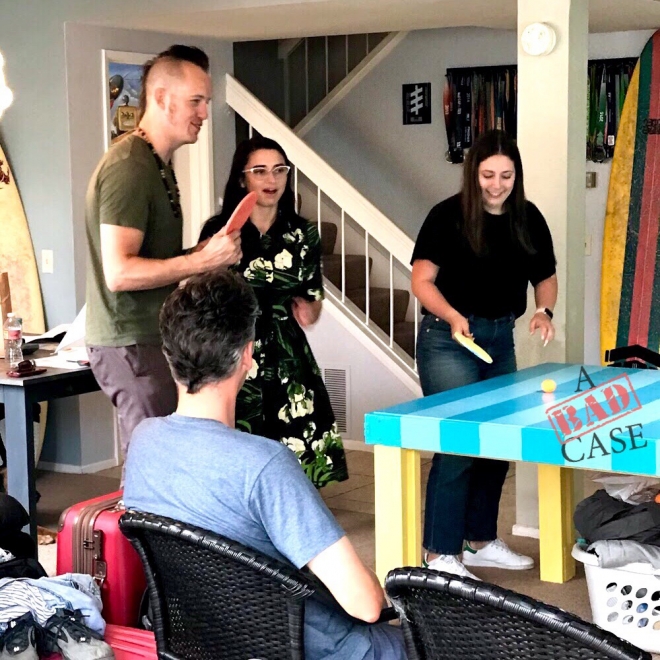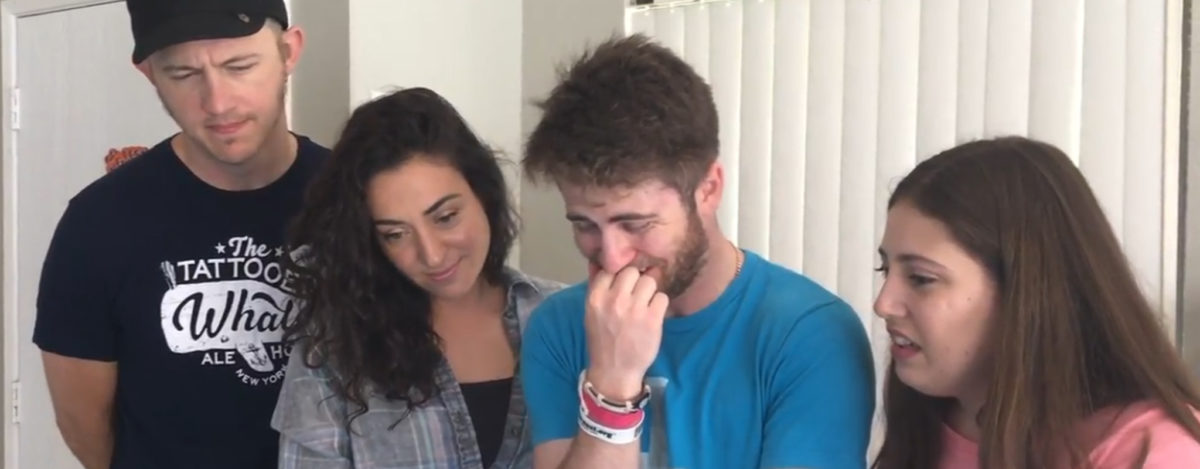Representation in Media – How The Stories We Hear Become the Stories We Tell Ourselves
As a kid, summers in our house consisted of three things: the beach, the pool, and the library. Each week after six days of sun and sand and surf, my mom would take us to our local library and let us check out our limit of books. The first week of summer after first grade, one of the fifteen books I picked out changed my life forever.
A big claim, I know. But it was a big book.
Pipi Longstocking is a 9-year-old who will defy any social convention but refuses to defy her moral code. The daughter of a great buccaneer now living on her own, her independence was on display as she cooked, cleaned and fixed everything that broke in her house.
She would tell tall tales of her seafaring days that captured the imaginations of the two kids next door, Tom and Annika. She does an amazing job of sharing her ideals with her very proper friends who hadn’t caught her spirit of independence just yet.
And my favorite trait? She would always make fun of unreasonable adults, especially when they were pompous and condescending.
Before reading Pipi, I thought I was a freak. My mind worked in such different ways and the impulse to live life by a moral code while disdainfully refusing to comply with social norms was so strong I couldn’t ignore it. And no one I had met in my short life understood it.
But when I met Pipi, it all made sense. I saw myself in someone else and realized I was not alone. And if there was one person who was like me, there might be others. I devoured the ten books in the series and then all four of the movies and from that moment on, I tried to live up to the ideals I saw Pipi live her life by.
Who are our Pipi’s?
In the US, there are over 1.25 million people with type 1 diabetes. That’s roughly 0.34 percent of the population. At that rate, of the 4,833 regular or recurring roles in broadcast, cable and streaming TV, and the roughly 18,100 roles in movies in 2017, 78 of them should be type 1. In 2017, there was one.
A character with type 1 was trapped in a pool for a long weekend in the film, 12 Feet Deep. Her diabetes was only thrown in to make an uncomfortable situation become dramatic. The last true character with diabetes was in 2015, when Stephen Wallem did a great job representing a type 1 nurse. But since then, TV and movies have been silent.
The result of that silence is symbolic annihilation, the idea that if you don’t see people like you in the media you consume, you must be unimportant. The only instances that type 1 shows up is as the one-dimensional trope of a person who is severely ill and bedridden, or a kidnapping victim, which sends a message to us and to others that those are the only two times they should pay attention to our mostly-invisible condition.
We need to see characters who do the daily things we do. They wake up low, they drink straight out of the apple juice bottle, they forget to refill their pump. These are the daily actions we need to see and relate to. I mean how many times do you expect to be trapped by a kidnapper in your lifetime? Now, how many lows do you expect to face in your lifetime?
Media informs the story we tell ourselves and is crucial to a healthy and well-balanced self-image. There are so many aspects of how type 1 defines our lives and our conversations that aren’t being portrayed in movies and TV. The varied ways we deal with this condition are completely absent.
It’s time to adjust the sails
Just like William A. Ward said, “The pessimist complains about the wind. The optimist expects it to change. The realist adjusts the sail.” It’s time we adjust our sails and provide people with characters in whom they can see themselves and know they are not alone.
This is exactly what I aim to do with A Bad Case, the first-ever original comedy series surrounding type 1. You’re bound to find yourself in one of the characters like Haley, super perky and positive, proper and well-mannered, who has a diabetes storage closet of your dreams, or Eliot, who’s a bit more laid back and has no problem finishing off a bowl of Lucky Charms for breakfast. I mean, after all, they do have a Magical Unicorn on the box. That must count for something.
Thoreau is having a harder time dealing with the fear diabetes can bring and is doing the bare minimum to keep himself out of the hospital. Eddie, our sole type 3, is trying to figure this whole diabetes thing out, but is still learning. He uses terms like “finger-blood-thingy” and is shocked to find out that he has blood sugar.
The series also explores the world of popular movies and TV shows to see what they would be like with a character with type 1. What if the Plastics from Mean Girls had diabetes? What if the guys from Office Space got frustrated with their insulin pumps instead of that damned copier? So, we get to see a series of very different characters take on the life of a type 1.

In this cast, people with diabetes will find someone to relate to and characters who talk about managing type 1 like they talk about the weather. They will have those conversations that only type 1’s can have with each other. We want to share the stories of characters in the daily management of diabetes such as one who forgets to refill his pump, or who can’t turn away from a plate of brownies first thing in the morning, or one whose fear of sharing her diagnosis stalls out her dating life. We have the reality of diabetes, not to spice up the drama, or to create another patient for a medical drama, but just as one more aspect of a well-developed character.
And that’s exactly the story we should be telling ourselves. That diabetes is just a part of who we are, a part that brings us strength and that makes us more interesting. Diabetes doesn’t just make our lives more difficult or make us the underdog in a zombie apocalypse, but it is a disease that has given us a community we wouldn’t have had otherwise.
Hollywood isn’t telling our story. And they shouldn’t. It’s not their story, it’s our story. Or, rather, it’s our stories. And it’s about time we start telling them.
If you want to be part of the solution that is seeking to share our stories and give people like us someone to relate to on-screen, you can support A Bad Case now through October 21, 2018 as they raise funds to shoot the next five episodes of Season 1 HERE. You can view the Pilot Episode on that site if you click on the media tab.





